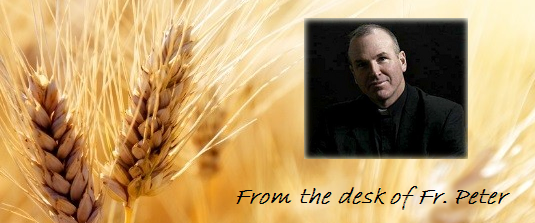Happy Easter! May the Divine Mercy raise you up in hope and courage!
Mercy Sunday is a special day for those around the world who have made the effort to pray the Divine Mercy Novena beginning Good Friday and culminating the second Sunday of Easter. The Chaplet of Divine Mercy was given to St. Maria Faustina Kowalska on Good Friday in 1935 by Jesus who wanted her to pray it as a Novena (9 days) with special intentions for each of the nine days it was prayed. St. Faustina relates in her Diary that Jesus made several promises to grant many special graces to those who would pray the Novena. This Sunday many of the faithful will begin to realize the graces and gifts that Jesus promised to those who would pray the Chaplet. Those who were included in the intentions will receive life changing graces in their lives as well! I am very happy that we include praying the Chaplet in our parishes, especially at St. Edward where it is prayed with the Rosary before all Masses. Jesus also made promises to those who would display an image of the Divine Mercy which is prominently displayed in our Churches at St. Thomas, St. Bernard and St. Edward. The rays streaming from the heart of Jesus in the image have symbolic meaning: red is for the blood of Jesus which is the life of souls and the pale color is for water and Baptism which justifies souls (diary par. 299). The whole image is symbolic of charity, divine love and forgiveness referred to as the “Fountain of Mercy.”
This Sunday the Divine Mercy devotion will begin at St. Edward at 3:00pm. All are invited to attend. There will be Solemn Exposition of the Blessed Sacrament, recitation of the Rosary, the Chaplet of Divine Mercy and then concluded with Solemn Benediction.
May God bless you always! +++ Fr. Peter

